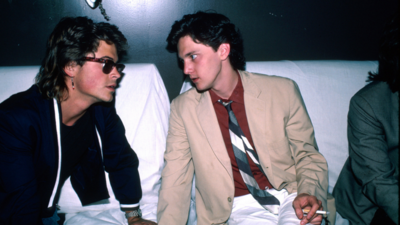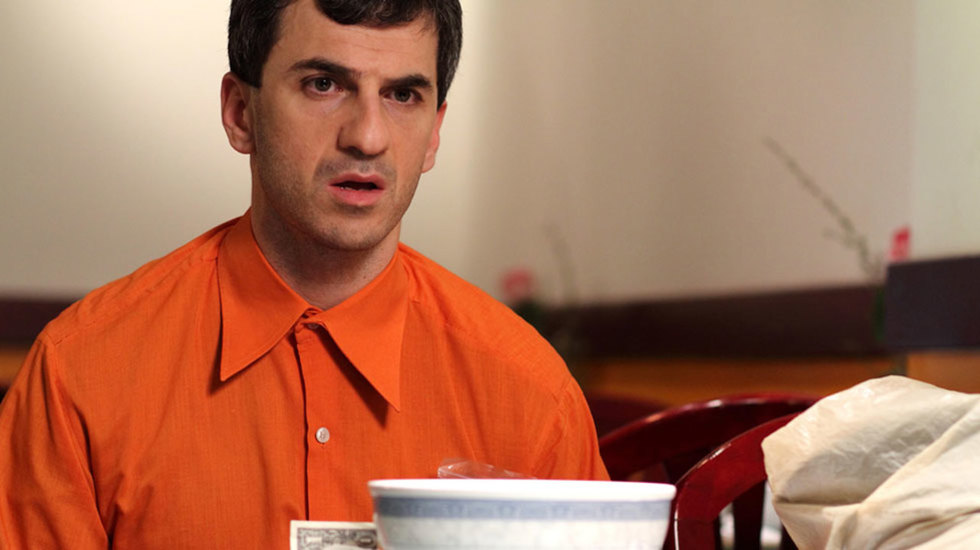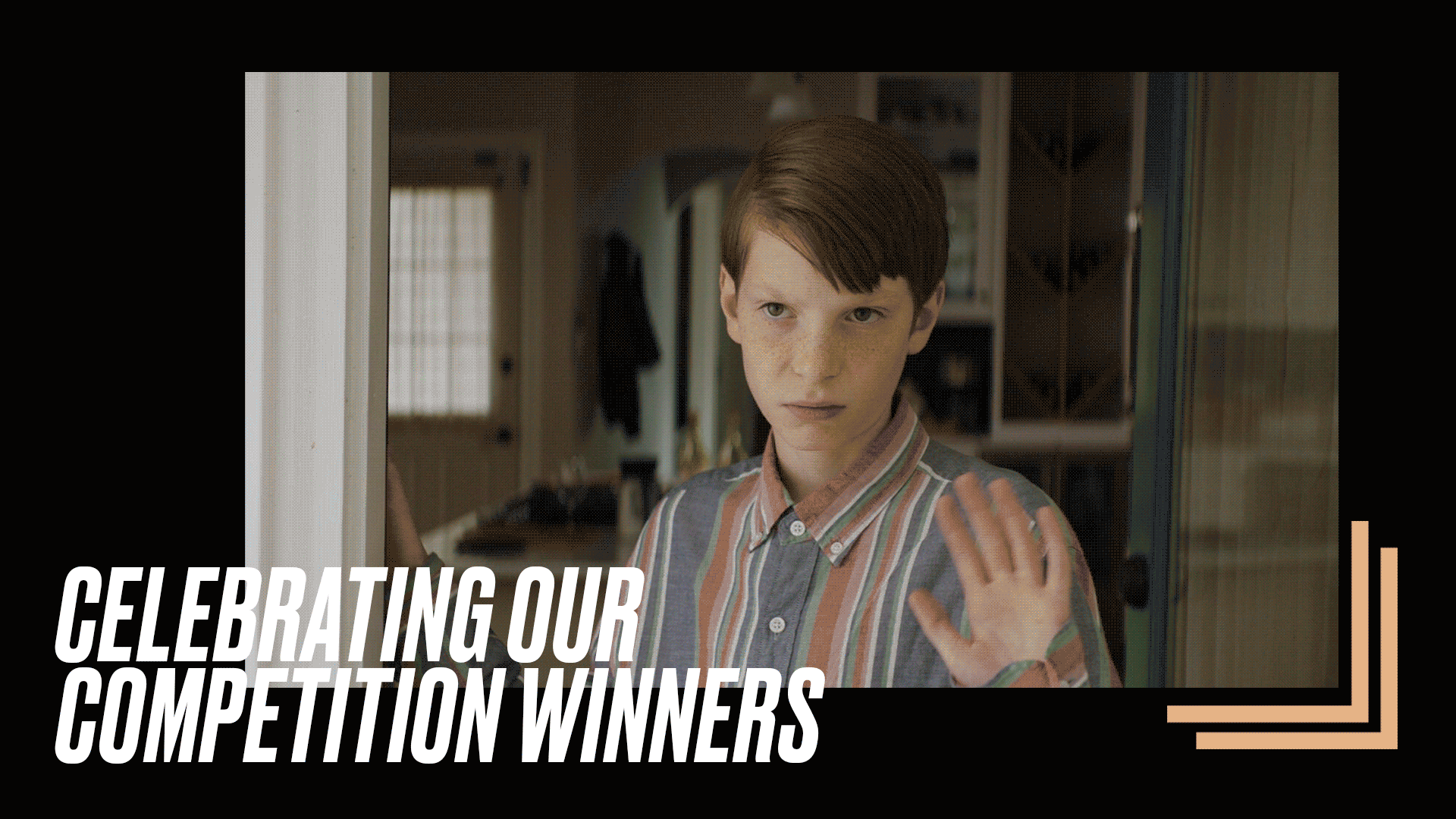
BY KAREN KEMMERLE |
‘Fortune House’ Director Matthew Bonifacio On the Possibilities of Short Films
Love is a mysterious force, but sometimes, it just needs a little help to flourish. Director Matthew Bonifacio talks about unconventional romances and finding inspiration in the most unlikely places in ‘Fortune House.’

Tribeca: Tell us a little about Fortune House. What inspired you to tell this story?
Matthew Bonifacio: Fortune House is about two people who form a bond due to fate, superstition or maybe just the power of love.
I am always most interested in exploring the lives of less familiar characters and stories that we normally don’t see on-screen. Audiences may know them as stereotypes, but I never judge my characters and try to remove assumptions and show them in a new light.
My producer (and wife) Julianna Bonifacio and I knew Bob Linton and his producer (and wife) Amber LaFrance from Lbs., and we all wanted to work together on a project that would mark Bob’s writing/producing debut and Amber’s producing debut. We first explored a couple of other projects, but, for various reasons, they never came together.
One day Bob pitched me a few short scripts he had been working on, and he saved the best for last. Just by the description, I was already deeply connected to the two lead characters, and I loved the idea of a story set inside a Chinese restaurant. It was a world I hadn’t visited in any of my other projects, and I knew it was finally the film we would all see through to the end.

Tribeca: Fortune House was penned by Bob Linton, who served as associate producer on your feature film, Lbs. Were you allowed to have any input on the script? Can you discuss your collaborative process?
MB: For projects that I don't write, I always request final say over the script. Bob agreed, and we decided to explore these characters and the story as much as possible on-set. We’re both very happy with what was captured, and I’m looking forward to working with him again.
Tribeca: I thought Michael Aronov gave an incredibly moving performance as Peter, a man obviously struggling with Asperger’s. It’s not often we see a character like that as the romantic lead in a short. Can you talk about how he came on to the project?
MB: Michael Aronov and I first worked together as actors Off-Broadway many years ago. I was completely blown away by his remarkable talent. He’s a chameleon who transforms both physically and mentally for every role he plays. I cast him in my first and second features, Lbs. and Amexicano, and we’ve remained friends. When I pitched him Fortune House, we discussed the role and he shared some ideas for his character. One of these ideas would be the genesis for Peter struggling with Asperger’s. I personally know two people with Asperger’s Syndrome, and they are both incredibly intelligent, walking human encyclopedias, just like Peter.
The idea organically developed during an improv take, which would later make the final cut.
Tribeca: Butterflies are an important motif in Fortune House. Why did you choose them to symbolize the connection and love between Peter and Mei Ling?
MB: Having Peter and Mei Ling connect through butterflies wasn’t in the original script. The idea organically developed during an improv take, which would later make the final cut. There were so many phenomenal conversations we filmed between Peter and Mei Ling, but I felt the butterflies were a beautiful parallel to the fragility of these characters and their developing relationship.
Tribeca: In which restaurant did you shoot Fortune House? Can you talk about the challenges of securing locations in NYC?
MB: The original title of the film (and also the original dish Peter orders) was called "Singapore Noodles, No Shrimp," which I thought was a catchy short film title by Bob. However, when searching for a Chinese restaurant location, I discovered a place on Henry Street in Brooklyn Heights called Fortune House. I really wanted to film there and became enamored by the name. It was so fitting for the story, and the location had rich colors and a great energy.
Julianna and I went there for lunch, spoke with the owners, and found our location—as well as a great new title. Securing locations always has its challenges (Will they work with our schedule? How many hours will they allow us to film? Will they work with our limited budget? Is there parking large enough for a truck?). With this location, we were very fortunate, no pun intended, to have film-friendly owners who worked with our schedule and cooked a delicious dinner for our cast and crew.

Tribeca: As a filmmaker who continues to make both feature length films and shorts, do you have a preference? What do you like best about each medium?
MB: Honestly, I love making both. The first film I ever made was a feature, and I followed it with my first short, so I did things a little bit backwards. Shorts give me the opportunity to work on my craft, explore new genres, work with new actors and crew members, and set films in different states or countries that may not be called for in my feature scripts.
Features are great because they give me more of a chance to develop the slow burn of character arcs with my actors and generally reach a larger audience. Sometimes I think people assume feature filmmakers are the rock stars and short filmmakers are just their opening act, but wow, I have seen some amazingly well done short films and personally feel just as proud of my short films as my features.
I never judge my characters and try to remove assumptions and show them in a new light.
Tribeca: As a returning filmmaker, what are you most looking forward to at Tribeca?
MB: It’s a new experience with every film. Tribeca audiences are very sharp and attentive, and I love their feedback. I also always learn something watching my films with a large audience. Where do they laugh? When do they get silent? Does the twist come as a surprise? I like to think observing this and taking mental notes will make my next project that much better.
Tribeca: What makes Fortune House a Tribeca must-see?
MB: I’m really proud of this film. It has universal themes, yet uncommon leading characters, and that leads to a film that I hope is very relatable, yet unique.
Fortune House premieres this Thursday, April 18 as part of the Shorts Program: Unlimited Ride at AMC Loews Village 7. For more information and additional showtimes, please visit our Film Guide listing.

